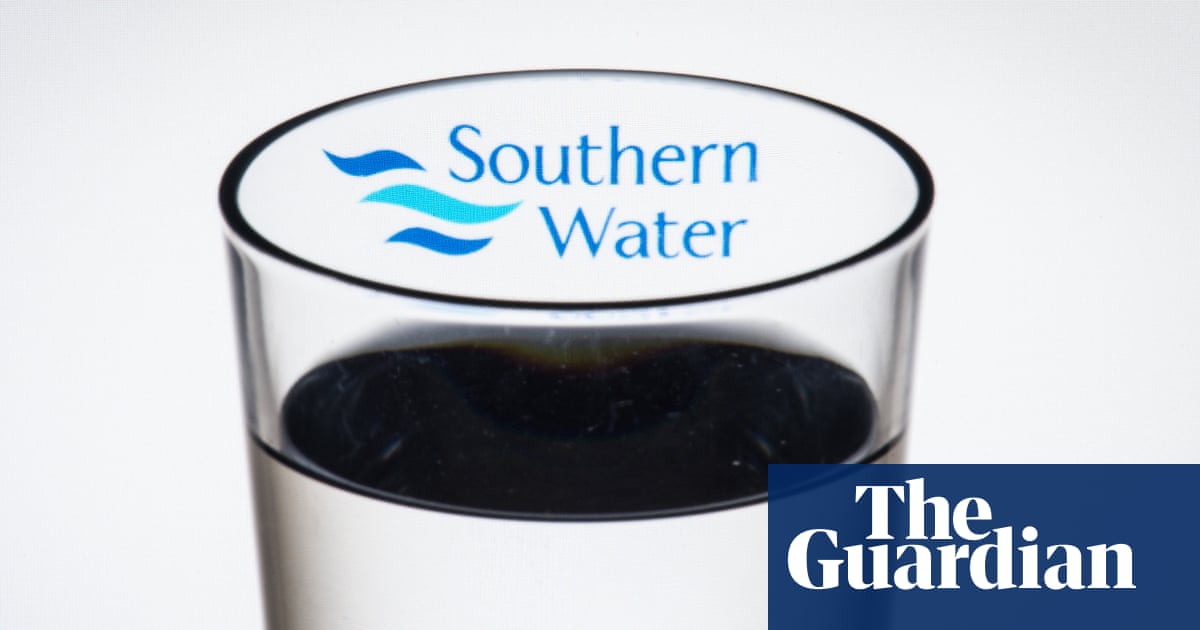
Southern Water is being challenged on Wednesday over its attempts to resort to a drought permit to take more water for its customers from a chalk stream as the dry conditions continue, even as the company leaks approximately 88m litres of water a day from its pipes.
The water company is asking for permission to remove more water from the River Test because of drought conditions in the south of England. But Fish Legal has asked for a formal hearing to challenge the attempt to abstract more water. The campaigning legal group says the company has not done enough to reduce water usage by customers or come up with a way to protect fish populations in the river before resorting to a drought permit.
Southern became the first water company in England to issue a hosepipe ban last week in Hampshire and the Isle of Wight. With other water companies, Southern contributes to water leakage of nearly 3bn litres a day from its pipes, although it says it is among the best in the country at tackling leaks. The company leaks approximately 88m litres of water a day.
The company has submitted a drought permit application to the Environment Agency to allow it to continue abstracting water from the Test even if the river falls below an agreed minimum level, which has been set to protect the salmon population.
Southern Water’s current licence allows it to take water from the Test as long as the flow does not drop to below 355m litres a day (mld), called the “hands-off flow” limit. This limit was set by the EA after a public inquiry in 2018. The utility company now want this level to be reduced temporarily to 265mld.
Penelope Gane, head of practice at Fish Legal, said: “With a dry winter and spring, a drought was virtually inevitable this summer. Yet water usage in the area has actually gone up since October 2021, which suggests that the water company’s efforts to ‘manage demand’ have not been working.
“Southern Water drought planning has not put the environment first. It is only belatedly that they have warned customers across Hampshire and the Isle of Wight that they intend to bring in a hosepipe ban.
“That says that only in extremis and at the last minute will Southern Water take proactive measures to protect the environment, in this case a rare chalk stream that is a habitat for salmon, rather than just continue with business as usual.”
Advertisement
Fish Legal says continued abstraction to below the current flow limit could seriously threaten the river’s ecology and fish populations, including Atlantic salmon and sea trout that are already being stressed due to low flows.
Wild salmon is at critical levels in English rivers. A report by Defra last month shows that 74% of rivers in England are now “at risk” with wild salmon populations no longer at sustainable levels and threatened with irreversible decline or even extinction.
Andrew Kelton, a solicitor for Fish Legal, said: “The drought permit will inevitably harm fish by reducing already extremely low, deoxygenated, warm water a great deal further and predictably leading to fish deaths. Southern Water have made some initial – and untested – plans for fish rescue and relocation, but I am not aware that this has ever been successfully done for migratory adult salmon.”
Southern Water said regarding its application for a drought permit: “While in the process of applying for a drought permit, we urge and remind all customers in Hampshire to reduce water use wherever possible, to help us protect the impact on the river’s habitat.”
Nick Price, water resources strategy manager at Southern Water, said: “With river flows dropping following a dry winter and spring, the risk is increasing that we will need to use a drought permit in order to continue supplying water. The less we take out of the River Test for water supply, the more we leave in it for wildlife and to support its precious habitats. We continue to ask customers to use water wisely.”
The company says its aim is to reduce water leakage by 15% by 2025 and 40% by 2040.












